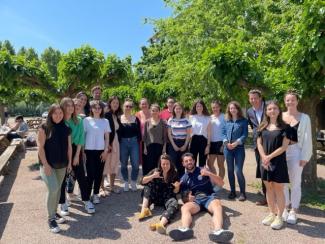Objectives: It is desirable to have followed module 1 (in Master 1) or to have a personal practice of mindfulness
To help students (and their students in M2) benefit from the positive effects of the practice of mindfulness, both from the point of view of learning and interpersonal relationships and the individual well-being of each.
Attention, concentration, empathy, self-esteem, cooperation, emotion management, school climate, benevolence, conflict prevention
-
in training...
Mindfulness is an expression designating an attitude of attention, presence and vigilant awareness, which can be internal (sensations, thoughts, emotions, actions, etc.) or external (to the surrounding world, sounds, objects, events, etc.).
According to psychiatrist Christophe André, meditation "promotes a mental state that prevents stress and depression. The word consciousness is sometimes considered reductive, which is why it is also called full presence, attentive presence. It also refers to a "training of the mind".
GPA allows us to develop attention and concentration skills, but more broadly, to understand what is going on in our bodies and thus to identify, welcome and accept our emotions.
In class, students are more available to the present moment and thus more focused, calmer (GPA allows the calming of the mind and emotions) and also develop empathy which can translate into better cooperation and living together.
Research also proves the benefits of GPA on the brain, since focused attention inhibits distractors.
Teachers, by practicing GPA in the classroom, are therefore developing their own psycho-social skills as well as those of their students.
 The students of the UE 3 site of Avignon
The students of the UE 3 site of Avignon
